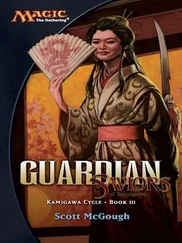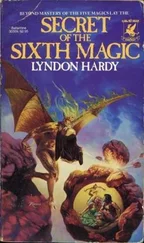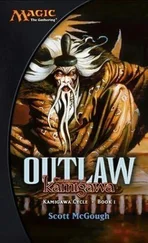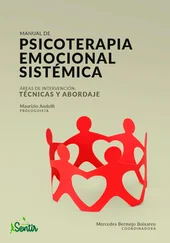Sujata Massey - Shimura Trouble
Здесь есть возможность читать онлайн «Sujata Massey - Shimura Trouble» весь текст электронной книги совершенно бесплатно (целиком полную версию без сокращений). В некоторых случаях можно слушать аудио, скачать через торрент в формате fb2 и присутствует краткое содержание. Жанр: Детектив, на английском языке. Описание произведения, (предисловие) а так же отзывы посетителей доступны на портале библиотеки ЛибКат.
- Название:Shimura Trouble
- Автор:
- Жанр:
- Год:неизвестен
- ISBN:нет данных
- Рейтинг книги:3 / 5. Голосов: 1
-
Избранное:Добавить в избранное
- Отзывы:
-
Ваша оценка:
- 60
- 1
- 2
- 3
- 4
- 5
Shimura Trouble: краткое содержание, описание и аннотация
Предлагаем к чтению аннотацию, описание, краткое содержание или предисловие (зависит от того, что написал сам автор книги «Shimura Trouble»). Если вы не нашли необходимую информацию о книге — напишите в комментариях, мы постараемся отыскать её.
Shimura Trouble — читать онлайн бесплатно полную книгу (весь текст) целиком
Ниже представлен текст книги, разбитый по страницам. Система сохранения места последней прочитанной страницы, позволяет с удобством читать онлайн бесплатно книгу «Shimura Trouble», без необходимости каждый раз заново искать на чём Вы остановились. Поставьте закладку, и сможете в любой момент перейти на страницу, на которой закончили чтение.
Интервал:
Закладка:
“Well, do you think there might be something odd about him selling to her rather than the husband?”
Yoshitsune shrugged again. “Why you think that?”
“I…well…he sold mostly to Asian women. I was wondering if any funny business might have been going on.”
Instead of answering me, Yosh said, “Watch it, we’re at King Street now. Left turn, and better start look parking.”
SIGNS ALL OVER the interior of the Tamashiro Fish Market declared NO EATING ALLOWED, though it seemed like the antithesis of fine dining. Walls were covered by the darkness of time, lights were dim, and we had to jostle through a crowd of customers to look at the fish. Yoshitsune taught me the names as we walked along. Thin, silvery butterfish, best under a miso glaze; opah, with a body as round as a full moon; and opakapaka, the best pink snapper. A large, flame-colored fish with whiskers looked especially enticing; Uncle Yoshitsune explained that it was called weke ula and was quite delicious.
I took three and had the counterman clean and scale them. Ten minutes later the complicated business was done and paid for, and I loaded my icy cooler with what seemed like an aquarium’s worth of sea life, because Yoshitsune had gone back to the prepared-dish counter for marinated sea urchins.
My great-uncle showed me an alternate route to the freeway on North School Street, which was dotted with okazu-ya open to the street where people were eating their lunches off paper plates. He persuaded me to stop, and pretty soon we were standing on the street, tasting poi-flavored Okinawan-style doughnuts and the crispest sweet potato tempura I’d ever eaten. Uncle Yosh, who’d added chicken yakitori to his order, ate quietly and fast, with obvious pleasure. In the silence, I pondered his story of the lost father, internment in a prison camp, and finally his mother’s death. After he came back, life couldn’t have been much better because he’d raised someone as unhappy and irresponsible as Edwin. My father said he wanted to help, out of guilt for what had happened to Harue. I thought if any help should be given, it should be to Yoshitsune.
“Did you ever receive reparations from the government for the internment?” I asked after we’d cleaned the oil from our hands, swigged down some water, and gotten back into the minivan, heading west.
“Yes. Twenty thousand dollah. I used the money to buy our house, and it was a good thing, because when Edwin had his financial trouble a few years back, he moved the family in.”
“Life has been hard for you,” I said, thinking of all the losses. He’d lost his father during childhood, he’d lost his happy youth during internment, plus his mother. And though he’d eventually married, his wife was gone, leaving Yosh in his old age with Edwin controlling him.
“Oh, not so bad. There was plenty of hardness to go around. The muddahs use to sing about it, I remember.”
“Your mother?”
“The other mothers had to teach mine the songs, you know, while they stripped the leaves from the cane in the fields. The plantation songs had a special name, hole hole bushi.”
“Women rice farmers sing hole hole bushi in Japan,” I said. “Women are known for these songs, not men. I wonder why.”
“’Cause it’s about complaining, that’s why!” Uncle Yosh then sang in a wavering voice, ‘My man is always drinking…no more money…where shall I go?”
I laughed, enjoying the sound of my great-uncle finally expressing himself in Japanese. “I guess there aren’t many people who remember the words anymore.”
“You’d be surprised. Most people your age had either parents or grandparents on the plantation.”
“Uncle Yosh, I was wondering. I’ve seen the plantation village, but I would really like to see your mother’s cottage.”
“You saw the photograph at dinner the other night.”
“Yes, but the picture didn’t give a sense of the landscape or scale of things.” I shot a glance at my uncle, who was staring rigidly ahead.
“Things ain’t like before, when the plantation was open for business. It’s way down on the water, through five miles or so of Pierce land. Can’t enter it that way, and on the other side the land’s military, closed to people like us.”
“I’d be willing to risk traveling through Pierce land. I run there almost every morning and haven’t been bothered.”
“Well, we can’t go now. What’s the point of drive all the way to Tamashiro’s and spoil the fish driving round?”
“OK, Uncle Yosh. You’ve got a good point,” I said, thinking there was no reason to force the point any further. He didn’t want to go. I was going to have to make the trip on my own, perhaps following tips from Kainoa, or-the thought struck me suddenly-going via the military side with Michael.
Despite the bit of awkwardness at the end, my trip out with my uncle had been a success, I thought as I dropped him back off at his house with his sea urchins before returning to Kainani. As I put the three fish in the coldest part of the fridge and programmed the rice cooker to switch on at five, I thought about what I’d learned. There was more he had to say, I was sure, but I’d learned the virtues of patience at my father’s knee. The truth would come out in time. And now it was time to see Michael, so I could stop thinking about family business for a while. I changed my clothes, swept up the minivan keys, and left.
13
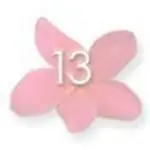
THE WAIKIKI YACHT Club was situated on the fringe of Ala Moana Park, the beach known as Honolulu’s safest place for children to swim. I puttered along the parking driveway that edged the beach park, looking in vain for a spot large enough for my vehicle. As I drove, I couldn’t help noticing how many of the mothers holding children’s hands shot untrusting glances toward my Odyssey, as if the vehicle’s rust, dirt and pure ugliness indicated a thug was at the wheel.
I gave up on finding a parking spot near the water, and as I returned to Ala Moana Boulevard, I decided to leave the minivan in the large parking garage attached to the Ala Moana Center. I backed easily into a generous space near Macy’s, locked up and emerged from the shadowy garage into bright sun, and waited for the light to change so I could walk across the busy boulevard to the yacht club.
Entering the low white stucco building made me slightly anxious, as entering members-only places sometimes did. When I’d called Georgina back for more information on the timing of the boat’s arrival, I’d thought about asking her what I should wear, but decided against it for fear of being gauche. Now I wish I had. The halter back of my clingy orange and turquoise striped silk sundress, and my high-heeled turquoise-studded sandals seemed too feminine against the backdrop of club members wearing either polo shirts and shorts or bright cotton shift dresses. But that wasn’t the biggest difference between the club members and me; as Edwin would have said, it was a haole place. I was the only Asian, hapa or otherwise.
I walked around the pleasant, teak-ceilinged rooms decorated with hundreds of nautical flags, choosing to linger in the trophy room, where there were almost a century’s worth of cups, statues and plaques celebrating feats of sailing and surfing. I did a double take at a series of trophies engraved with the name of Duke Kahanamoku, the world’s fastest swimmer and most famous surfer during the first part of the twentieth century.
If Duke, who was indisputably Hawaiian, was a member of this club in the old days, that was a good sign. And then I saw another name that made my skin prickle: Pierce. Someone called Lindsay Pierce, a big handsome blond man photographed in 1968 holding a mammoth trophy. If Lindsay was in his thirties in 1968, the date of the picture, he’d have been too young to remember real-estate transactions taking place in the thirties. But the sight of him reminded me of how badly I wanted to talk to someone in the Pierce family. Now I’d found a connection.
Читать дальшеИнтервал:
Закладка:
Похожие книги на «Shimura Trouble»
Представляем Вашему вниманию похожие книги на «Shimura Trouble» списком для выбора. Мы отобрали схожую по названию и смыслу литературу в надежде предоставить читателям больше вариантов отыскать новые, интересные, ещё непрочитанные произведения.
Обсуждение, отзывы о книге «Shimura Trouble» и просто собственные мнения читателей. Оставьте ваши комментарии, напишите, что Вы думаете о произведении, его смысле или главных героях. Укажите что конкретно понравилось, а что нет, и почему Вы так считаете.

